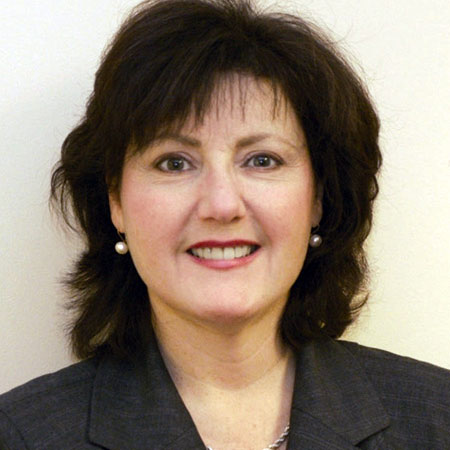PCPC’s International Efforts Focused On EU Microplastics Reg, China's CSAR Rollout
Executive Summary
Francine Lamoriello, executive vice president of global strategies at the Personal Care Products Council, provided an overview of the group’s international activities at its 2022 Leadership Summit in Washington.
Personal Care Products Council leadership cited the EU’s draft regulation to restrict microplastic use and China’s ongoing implementation of new cosmetics regulations as key priorities for the group’s international program.
Speaking in the “Washington Report” portion of PCPC’s 2022 Leadership Summit in Washington on 28 September, Francine Lamoriello, executive VP of global strategies, noted the association is tracking environmental-themed regulatory developments around the world.
But the European Commission’s proposal for microplastic restrictions – which would prohibit use of non-biodegradable microplastic in rinse-off and leave-on cosmetics within four years and six years of the regulation’s entry into force, respectively – looms largest and stands to have global ripple effects. A 12-year transition period is allowed for makeup, lip and nail cosmetics.
The “EU Commission’s recent proposal for microplastics restrictions is an example of a law that is not only going to be significant and impactful on industry, but we know that what the EU is doing will be modeled in other countries and perhaps even in some US states, bringing it full circle,” Lamoriello said.
 pcpc's Francine Lamoriello, Executive VP Of Global Strategies
pcpc's Francine Lamoriello, Executive VP Of Global Strategies
The Commission’s proposed 12-year transition period for microplastic in makeup, lip and nail cosmetics is twice that proposed by the European Chemicals Agency in January 2019, representing a clear if not total win for industry, which also sought to exempt makeup, lip and nail cosmetics from the restriction altogether. (Also see "Microplastic Must Be Gone From Makeup, Lip, Nail Cosmetics In 12 Years – EU Commission" - HBW Insight, 8 Sep, 2022.)
Cosmetic manufacturers will face the challenge of switching en masse to alternative ingredients with comparable functional, performance and consumer acceptance profiles, which Cosmetics Europe and other industry advocates say are in short supply and in some cases nonexistent.
According to industry, some 23,000 products will have to be reformulated. ECHA has estimated that the microplastic restriction will cost the cosmetics industry up to €15bn ($15bn) over 20 years, representing nearly 80% of the restriction’s total cost across all affected sectors. Meanwhile, cosmetics account for just 2% of targeted microplastic emissions overall.
“Our priority has really been to look for ways to coordinate and promote global industry positions on these environmental regulations and to work with our partners in Europe and Asia and Latin America to see what we can do for a one goal or objective or approach,” Lamoriello said.
In an interview in early 2021, PCPC leadership noted potential trade barriers posed by the microplastics restriction, which it said could cause “serious disproportionate disruption and harm to our industry in the United States, without really a benefit to the environment.”
In the US, California and at least four other states are considering legislation on microplastic use in products including cosmetics. AB 2787 in California, which would have banned the sale of leave-on cosmetics containing intentionally added microplastics beginning 1 January 2029, passed Assembly committees on Natural Resources, Environmental Safety and Toxic Materials, and Appropriations before being shelved in May. (Also see "US States Take Aim At Microplastics Among ‘Overwhelming’ Number Of Bills With Cosmetics Relevance" - HBW Insight, 4 Apr, 2022.)
PCPC and other industry groups took an “oppose unless amended” position on the bill, calling for alignment with the coming EU regulation and an exemption for microplastic-containing leave-on cosmetics, among other changes.
Various other environmental initiatives are pressing in the EU and elsewhere, Lamoriello said. “Like we see in the US, these have ranged from ingredient restrictions to rules on extended producer responsibility, recycling, packaging, green claims. And these can have a really significant impact on our industry.”
In March 2022, PCPC worked with its peers around the world to develop a global industry position paper outlining support and principles for a United Nations Treaty on plastics pollution.
“Working in coalition with organizations to address upstream and downstream solutions to packaging waste and the inherent challenges of a linear economy, industry is committed to taking the necessary steps to support a waste-free future,” the trade association says in its 2021 Sustainability Report released in September.
PCPC notes on its website that a global industry working group will continue to follow negotiations and provide input to the process as appropriate, specifically pushing for:
-
adaptability in implementation;
-
interventions across the full life cycle of plastic;
-
life-cycle assessments;
-
guidance on product design;
-
increased post-consumer technology capacity and deployment;
-
harmonized definitions and reporting; and
-
proportionality.
“All our global advocacy work is really grounded in the conviction that as a united international industry, when we can have one common objective, one global voice for our advocacy, we will be much more effective in really achieving the goals that we all have of regulatory convergence and increased market access for our industry and also enhance the safety and quality of the products that we are offering to consumers,” Lamoriello said.
China Work Goes On
China remains a top priority for PCPC’s international program.
“We’ve really been working very hard this past year to help our members navigate all of the new rules and regulations that are coming from China’s reform measures [under] the Cosmetics Supervision and Administration Regulation [CSAR], Lamoriello said.
CSAR entered into force on 1 January 2021, replacing the 1989 Regulation Concerning the Hygiene Supervision over Cosmetics as China’s framework law for beauty and personal-care products oversight, comparable to the Federal Food, Drug and Cosmetics Act in the US.
Since it went into effect, China’s National Medical Products Administration has finalized a number of secondary regulations and guidances – including on safety assessment and product labeling – and is working toward full implementation of the new law by 2023, according to PCPC’s website. (Also see "China Releases Cosmetic Safety Assessment Guidelines, Other Draft CSAR Subsidiary Regs" - HBW Insight, 29 Jul, 2020.)
CSAR is designed to align China’s regulatory framework more closely with global standards, placing the primary responsibility for product safety substantiation on manufacturers, as in the US and EU. It also is intended to help reduce administrative red tape that hindered market access under China’s former regulatory regime, which was notoriously difficult for foreign companies to navigate. (Also see "China’s Overhaul Of Cosmetics Regs Would Promote Level Competition" - HBW Insight, 28 Apr, 2015.)
The reform measures have yielded positive results, including a “more streamlined way of registering and notifying products to put on the market,” as well as a path to place many cosmetic products on the market in China without the need for animal testing,” Lamoriello says. (Also see "PCPC Exploring Solutions With Chinese Authorities To Facilitate Cruelty-Free Cosmetic Imports" - HBW Insight, 25 Jan, 2021.)
However, challenges remain with respect to the NMPA’s implementation of the regulation, which has given rise to burdensome requirements, representing “an approach which is probably more appropriate for pharmaceutical drugs than for cosmetics,” Lamoriello said.
She continued, “So this past year and for the last two years, I think it’s fair to say we’ve mounted a tremendous effort to respond to all of the new regulatory measures that NMPA is proposing. We are analyzing these with our members, we are providing feedback to NMPA, pointing out the areas of difficulty and really looking to provide solutions and suggestions for how these could be improved.”
PCPC is coordinating with partners in Europe and Asia, “so it doesn’t become a US versus other country position,” Lamoriello said.
Ongoing COVID-19-related lockdowns in China have complicated PCPC’s communication with the NMPA and hindered its members’ ability to comply with some requirements, focusing PCPC efforts on seeking deadline extensions.
Moreover, “there’s a lot of tension right now with the US-China relationship, and that doesn’t promote dialogue either. However, we are persisting, we know this will continue to be a great challenge, but the Chinese market is such a larger market and such an opportunity that we know this will be a priority for our program for many years,” she said.
